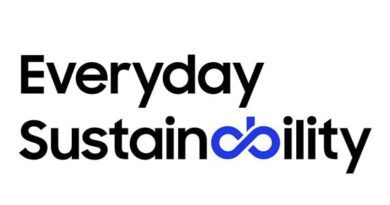5 things to look out for when buying a repossessed property
You could pick up a repossessed property at a bargain price. But, there may be hidden risks to doing so.
Why buy a repossessed property?
Buying a repossessed property is, quite often, a great financial decision…when you’re just looking at the purchase price. Because the financial institution that’s involved in auctioning the property is merely looking to recoup its costs, repossessed properties are often sold to a willing bidder at below market value. Moreover, you won’t pay transfer duties when you buy a repossessed property, but you will have to pay up for legal fees and other necessities attached to buying a property. And while it may appear to be a great bargain, you may have some hidden costs to figure out first.
Bargain with no benefits
Properties that go into repossession end up there, usually due to one single factor: money, or rather, the lack of it. Repossessed properties are the result of the previous owner’s financial distress. It only stands to reason then that, if the property owner couldn’t afford to keep up their bond payments, they were most likely unable to keep up with home maintenance too. You may pick up a great property at a sweet price, but you may end up spending what you saved on renovations and repairs.
Empty houses
By the time the repossessed property goes on to auction, the financial institution (and possibly the previous owner) has already tried to sell it several times. That means a large amount of time will have often passed, with nobody living in it.
A repossessed property will, very often, stand empty for a significant amount of time, leaving it vulnerable to vandals and criminals. While many financial institutions will try to ensure the security of the property, it’s not always possible to protect the property from vandals. Expensive fittings, pipes, and other materials may be removed during the time the home stands empty, and replacing all of these items will be your responsibility.
Don’t expect an inspection
When buying a property, it’s imperative that you inspect it before you sign the final offer. Buying a property is a massive financial decision, and conducting personal inspections, and calling in professional, registered, and certified service providers to inspect the property is vital. When you’re buying a repossessed property, however, that can get a little difficult. You may find it difficult to facilitate the process of personal and professional inspections, as the property may have tenants in, or be inaccessible to you until you buy it. That can be a big problem, and one that you’ll only know the full extent of, once you take ownership. Repossessed properties are sold “as is”, and you may not know just how “as is” it truly is, until you’ve got the keys, and are able to call in the professionals.
Unexpected guests
To be clear, they won’t be guests. If the repossessed property you purchase does, however, have tenants living it, you may be in for a bit of a battle. Tenants are significantly protected in terms of the law and their lease agreement, which means you would need to follow all due process to legally end their lease. If things get sticky, you could end up in a bit of an unexpected battle. Following a legally compliant eviction process will be your responsibility. If you don’t follow the correct procedure, you may end up with even more of a headache, that affects not only your mind, but your bank account too.
Read more: Rental laws and how they affect tenants and landlords
Paying the bills
While the financial institution you purchase a repossessed property from will do its best to ensure all municipal and utility bills for the property are paid up, you’ll still need to verify this independently. Almost anything can happen in that situation, so you’ll need to be one step ahead in terms of verifying and ensuring all the bills are paid up. Reconnecting utilities and municipal services will, most likely, become an item on your to do list. Make some space in your schedule for additional administrative tasks, because buying a repossessed property will cost you in time.
Decision time
Ultimately, buying a repossessed property could pay off. But, what you save on the purchase price could cost you in other ways, whether it be money, time, or effort. Make sure you’re ready to manage the risks, when you’re looking to buy a repossessed property.
Source: bizcommunity.com


